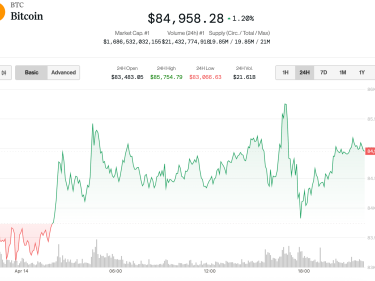Coinbase and a16z reps slam Warren bill as crypto industry mounts offensive against crackdown
Crypto insiders hit back against Senator Elizabeth Warren’s proposed anti-money laundering law in an open letter, warning that the bill “would inadvertently hinder law enforcement and national security efforts.”
The proposed Digital Asset and Anti-Money Laundering Act may drive “the majority of the digital asset industry overseas” and “threatens tens of thousands of US jobs,” the letter sent on February 13 warned.
“This shift could also lead to increased liquidity in unregulated offshore exchanges and a loss of valuable expertise and visibility for the US in the blockchain realm,” the 80 signatories continued.
“Further, this legislation, if implemented, will have no meaningful effect on the foreign illicit actors it targets.”
The letter is an initiative led by advocacy group Blockchain Association. It is the latest salvo fired in an industry-wide backlash against anti-crypto firebrand Warren’s bill, and a wider government crackdown on crypto in the US that have seen regulators ask for more power to police the industry.
The bipartisan bill was introduced in 2022, and gained more sponsors at the end of 2023.
Legal scholars have cast doubt on the bill ever passing into law due to Congress prioritising other regulations and the upcoming US election.
Even so, Warren’s bill has been referred to as “a wake-up call for the industry” by Rebecca Rettig, chief legal and policy officer at Polygon Labs, who spoke to DL News in December.
She urged the industry to help develop laws to counter financial crimes, and recently published a research paper addressing how governments could regulate DeFi to prevent illicit financing.
The most recent backlash comes on the back of the crypto industry mounting a counter-offensive against a new rule change that will broaden the US Securities and Exchange Commission’s definition of dealers, bringing more DeFi market participants under the regulator’s purview.
The SEC voted through the rule earlier in February.
‘A group of experienced national security leaders’
The 80 signatories behind the open letter described themselves as “a group of experienced national security leaders, practitioners, and former military service members.”
The signatories included Coinbase’s Chief Policy Officer Faryar Shirzad; Andreessen Horowitz’s regulatory head Michele Korver; Gus Coldebella, a partner at VC firm True Ventures; the Texas Blockchain Council’s president Lee Bratcher; and the CEO of the Bitcoin Mining Museum, Tobias Barbir.
They said they acted “independent of any employer and compelled only by the beliefs derived from our unique expertise.”
“We are witnessing a pivotal moment where the future of digital asset development hangs in the balance,” Blockchain Association CEO Kristin Smith said in a statement. “It is imperative that policymakers consider the collective expertise of the signatories and recognise the invaluable role digital assets play in driving economic growth.”
In response to a similar previous letter, Warren penned her own missive to the Blockchain Association in December.
She accused the association of using “a small army of former defence, national security and law enforcement officials” to “undermine bipartisan efforts” aimed at addressing “the role of cryptocurrency in financing Hamas and other terrorist organisations.”
The Massachusetts Democrat has previously decried digital assets as “a haven for illegal activity” and “a fourth-rate alternative to real currency.”
Coinbase’s Shirzad later refuted Warren’s letter in a post on X, saying the company was proud of its “record of rooting out illicit activity on our platform, and of our deep partnership with law enforcement in going after bad guys.”
A contested Wall Street Journal story, published in October, reported that Palestinian Islamic Jihad, a Hamas affiliate, raised as much as $93 million in crypto between August 2021 and June of 2023.
Wallets connected to Hamas received $41 million more.
The publication cited an analysis by crypto analytics firm Elliptic.
Elliptic later disavowed the report, saying its analysis never concluded PIJ had raised $93 million.
Sebastian Sinclair is a markets correspondent for DL News. Have a tip? Contact Seb at sebastian@dlnews.com.




